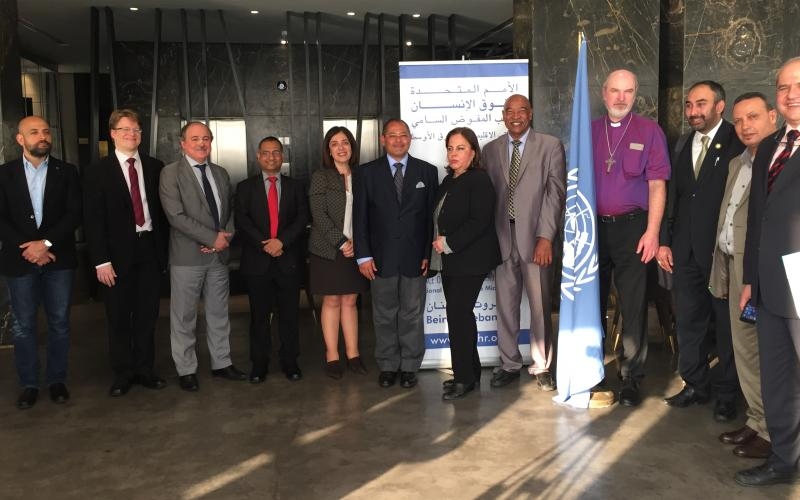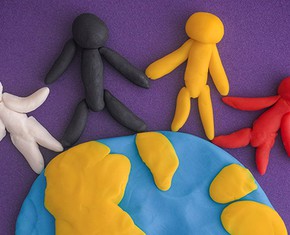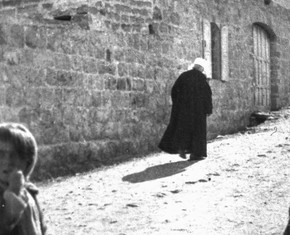Too often, people see religion primarily as a divisive force in society.
Popular media and discourse highlight the abuse of power by segments of religious and political leadership, the fueling of prejudice and superstition, and violations of human dignity and honor.
“These distortions of religion undermine a powerful force that can help combat the very ills in society that are tearing it apart,” explained Diane Ala’i, representative of the Baha’i International Community (BIC) to the UN in Geneva. “This is true especially because religion speaks to the highest aspirations of human beings and inspires them to act for the greater good in a way that few other things, if any, can.
“The challenge before us is to look at religion from a different angle and draw on those universal principles of love, of justice, of forgiveness, and of concern for our fellow human beings, all of which lie at the heart of religious belief,” she continued.
Ms. Ala’i’s sentiments are shared widely among conscientious leaders and organizations, which have been in dialogue for years about how they can work together to combat ignorance, hatred, and prejudice. One recent chapter in this unfolding dialogue took place in Beirut at the “Faith for Rights” meeting organized by the Office of the United Nations High Commissioner for Human Rights from 28–29 March.
In his opening remarks, Zeid Ra’ad Al-Hussein, UN High Commissioner for Human Rights, attributed the root cause of human rights violations to an absence of a deep sense of justice. To address this void, he explained, religion must play a pivotal role in upholding respect for the dignity and equality of all humankind.
In fact, in recent years, the UN has appealed to religious communities to share in the responsibility of safeguarding human rights. “Religion and human rights are not in contradiction—quite the contrary,” said Ms. Ala’i.
Speaking about the Faith for Rights meeting, she said, “There was this consensus about the need to show the unifying nature of religion—a force for peace, not for war; a force for unity, not for violence; a force for understanding, not for fanaticism.”
Religious leaders and civil society actors, hailing from around the world, explored ways to cooperate in safeguarding human rights for all. The result was the preparation of two documents: the Beirut Declaration on “Faith for Rights” and 18 Commitments on “Faith for Rights.”
A substantial number of those present came from the Middle East and represented a range of religious communities and faith-based organizations.

The 18 Commitments on “Faith for Rights” draws on many religious writings. The decision to choose 18 was an allusion to Article 18 of the Universal Declaration of Human Rights, which protects the right to freedom of thought and religion.
Among those sacred texts selected for inclusion in the document is this passage, quoted from Abdu’l-Baha during a talk in New York City in June of 1912:
The essential purpose of the religion of God is to establish unity among mankind. The divine Manifestations were Founders of the means of fellowship and love. They did not come to create discord, strife and hatred in the world. The religion of God is the cause of love, but if it is made to be the source of enmity and bloodshed, surely its absence is preferable to its existence; for then it becomes satanic, detrimental and an obstacle to the human world. – The Promulgation of Universal Peace, p. 202.
This passage from the Baha’i teachings is now included in Article 9 of the 18 Commitments on “Faith for Rights.”
It is hoped that the Commitments and Declaration from the UN’s “Faith for Rights” meeting in Beirut will be read and endorsed by government officials in an upcoming conference to be held in Rabat, Morocco.
















Comments
Sign in or create an account
Continue with Googleor